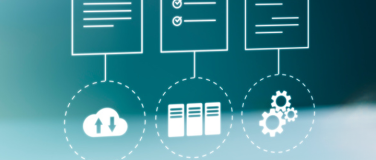On Friday, Twilio, a cloud communications platform, announced that it is powering the communications for New York City’s contact tracing initiative. The city’s Department of Information Technology and Telecommunications (DoITT) is planning to deploy a cloud-based contact center based on Twilio Flex, leveraging Twilio SMS and Voice as key parts of the City’s COVID-19 tracing program.
Twilio Flex is a solution that allows organizations to deploy a cloud-based contact tracing center using outbound calls, health surveys, and SMS notifications. Using it, cities, hospitals, and other organizations have been able to build centers for contact tracers to interview COVID-19 patients, notify their contacts of potential exposure, and monitor ongoing symptoms even as their staff have been required to work remotely due to social distancing measures. New York City recently announced a plan to hire thousands of contact tracers to support its efforts in the coming months highlighting the need for scale and speed.
Due to the COVID-19 pandemic, organizations are facing the need to be more agile than ever. For example, consider the City of Pittsburgh’s 311 information service. The team tasked with ensuring 311 continuity needed to enable its operators to continue their work even after their legacy, on-premise call center was deemed unsafe due to COVID-19. It used the API-backed Twilio Flex platform to roll out a live, cloud-based contact center in days, not weeks or months.
The key to this agility has to do with the way APIs enable the idea of composable applications. The word “composable” implies that an application is assembled from a collection of pre-existing parts rather than having to be entirely coded from scratch.
Metaphorically speaking, it’s the difference between snapping together a bunch of Lego pieces to assemble a toy building or molding the building’s parts out of plastic yourself. In fact, in the construction industry, you often see buildings that are assembled out of prefabricated parts. The entire modular home industry is based on such prefabrication, and like Lego, even allows for some customization. Depending on the building, construction can be completed in days or weeks versus months.
When functionality like maps or SMS and voice messaging is available to developers as an off the shelf prefabricated part, the time it takes to compose an application out of those parts, even when some custom code is required, can be dramatically reduced. In today’s digital economy, each part, whether it comes from Twilio, Google, Stripe or any of the other 23,000+ “part providers” listed in ProgrammableWeb’s directory, is invariably connected to the other parts by way of its API.
While the COVID-19 pandemic is a public health emergency that obviously demands a rapid reorganization of operations on behalf of local, state, and national government organizations like New York City, it is structurally no different than a sudden shift in market conditions to which any organization might have to respond on a timely basis. Such shifts could have to do with pressure from competitors or disruptive startups, changing customer requirements, economic trends, outbreak of war, etc. While APIs are clearly a key driver for this type of agility for organizations like the City of Pittsburgh at times like these, it’s also a reminder of how much more resilient-to-change companies can be when they embrace the idea of composable enterprises through API-led connectivity. Organizations that have started their API-led journey are well-positioned to survive such change and better serve their constituents (customers, citizens, stockholders, employees, etc.).









